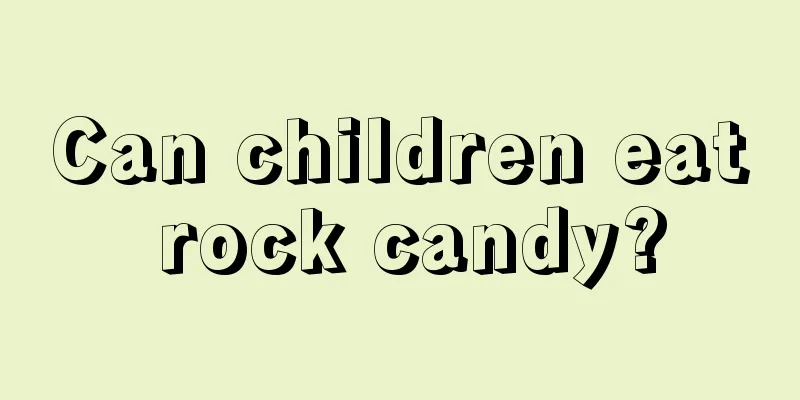Reasons why babies sweat a lot in summer

|
Many mothers have found that their children's back of the head sweats easily when they sleep, whether it is hot summer or cold winter. Why do babies sweat so much? What is the reason why babies sweat a lot in summer? Here I will introduce to you the reasons why babies sweat a lot, I hope it will be helpful to mothers. There are five situations in which children have physiological hyperhidrosis It is common for babies to sweat during sleep, and it is not always a symptom of weakness or illness. Many parents believe that their children’s constant sweating is due to their weak constitution. In fact, a considerable number of children suffer from physiological hyperhidrosis. Physiological hyperhidrosis is more common in the head and neck, often occurring within half an hour after falling asleep, and sweating stops in about an hour. Infants and young children have an active metabolism and are active and lively. Some of them cannot rest even after going to bed at night, so they may sweat on their heads after falling asleep. The so-called physiological hyperhidrosis refers to sweating during sleep when the child is well-developed, healthy, and has no disease. Parents are often accustomed to deciding the best environmental temperature for their children based on their own subjective feelings, and like to cover their babies with more blankets and keep them tightly covered. Because children's brain and nervous system are not yet fully developed and they are in the growth and development period, their body metabolism is very active. Coupled with the stimulation of overheating, they can only regulate normal body temperature by sweating to evaporate the heat in the body. Some active children exercise a lot during the day and generate a lot of heat. The body is unable to dissipate the excess heat through sweating, so the heat accumulates in the baby's body, and the baby's body temperature can reach around 38°C at night. After the baby falls asleep, the heat generated decreases, the sensitivity of the sympathetic nerves decreases, and the body dissipates excess heat through sweating to maintain normal body temperature. In addition, drinking milk, malted milk or eating chocolate before going to bed can also cause sweating in children. Some parents give their children milk, malted milk, etc. before they go to sleep. After the child falls asleep, the body produces a large amount of heat, which is mainly dissipated through sweating through the skin. In addition, too high room temperature or excessive warmth can also cause children to sweat while sleeping, which are all physiological sweating. The weather is hot and stuffy in summer and the bedroom is poorly ventilated, so babies are more likely to sweat. This type of sweating is called "physiological sweating" in medicine. It usually occurs in the first half of the night when you just fall asleep, and the sweat gradually disappears after deep sleep. Parents do not need to worry too much about physiological sweating. This is just a physiological phenomenon during the baby's growth process. As the baby grows older, this phenomenon will gradually decrease. Children sweat a lot in the second half of the night, which is mostly pathological sweating Pathological sweating occurs when the child is in a quiet state, such as sweating caused by rickets, which manifests as obvious sweating on the child's head in the first half of the night after falling asleep. Because the pillow is irritated by sweat, babies often shake their heads and rub against the pillow when they sleep, resulting in sparse hair and loss of hair on the pillow, forming typical annular hair loss on the pillow, which is medically known as "occipital baldness". It is an early manifestation of rickets in infants. As long as vitamin D and calcium are supplemented in time, rickets can be controlled and sweating will stop by itself. If a child sweats not only in the first half of the night but also in the second half of the night and before dawn, it is usually a sign of illness, the most common of which is tuberculosis. Tuberculosis also has other symptoms, such as low fever, fatigue, loss of appetite, flushed cheeks, etc. Children with tuberculosis tend to sweat easily during daytime activities, which is called spontaneous sweating, and sweating at night is called night sweats. In addition to the symptoms of night sweats, there are also symptoms such as fever, weight loss, cough, etc. Blood tests show an increased erythrocyte sedimentation rate. If you suspect your child is infected with tuberculosis, a lung X-ray or a tuberculin test should be done for timely diagnosis and treatment. For children suspected of pathological sweating, we should pay attention to the accompanying symptoms, go to the hospital for examination in time, and take appropriate treatment measures. For example, children with rickets should supplement calcium and vitamin D under the guidance of a doctor; infectious diseases should be treated with anti-infection drugs. After the disease is cured, the symptoms of night sweats will disappear. Does sweating a lot in children mean they are weak? Children with weak constitutions often sweat in patches on their head, chest, and back when they are active during the day or after falling asleep at night. It is often caused by malnutrition due to improper feeding or poor digestion and absorption. In terms of nursing, attention should be paid to adjusting feeding methods, promoting children's appetite, and increasing the intake of protein, fat and sugar. If necessary, traditional Chinese medicine can be used to regulate spleen and stomach disharmony. Therefore, children's sweating during sleep should be carefully distinguished. If necessary, take the child to the hospital to check trace elements and treat any abnormalities in time. Generally speaking, babies sweat a lot because of their rapid metabolism. This is physiological sweating and mothers do not need to worry about it. However, there is also pathological sweating. Therefore, if you find symptoms of sweating in babies, you must find out the reasons why babies sweat a lot in summer. Only in this way can you discover the disease and treat it in time when the disease is just in its infancy. |
<<: What causes yellow baby teeth?
>>: Steps to make mashed potatoes for kids
Recommend
What to do if your newborn baby has a crooked mouth
There are many reasons why a newborn baby may hav...
Why does my baby have diarrhea after drinking milk powder?
My baby gets diarrhea as soon as he drinks milk p...
What causes bloodshot eyes in children?
If a child has bloodshot eyes, the eyes may itch....
3 month old baby's palms and feet are wet
When the baby is 3 months old, he can be held upr...
What to do if breast milk is insufficient at six months
Babies aged six months can generally start to eat...
Can precocious puberty be treated?
In today's society, as everyone's market ...
What should I do if my child has edema of the foreskin of his penis?
The foreskin has edema, which is a common phenome...
Why do newborns wake up easily when sleeping?
There will be many strange behaviors in babies af...
Four things that babies need when using air conditioning in summer
In the hot summer, parents are very worried about...
Reasons for green stools in 2-month-old babies
There are many reasons why a 2-month-old baby'...
Treatment of myasthenia gravis ocular type in children
Many children are born with severe physical probl...
How do children practice boxing?
As people's ideas change, many parents begin ...
Children's growth and development indicators
Ten months of pregnancy and one day of delivery e...
Spring children's health care methods
In life, we should know that it is not only adult...
How high is the pillow for a six-month-old baby?
6-month-old babies are in an important and critic...









